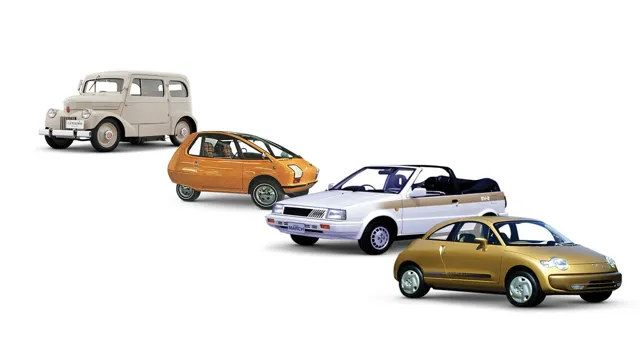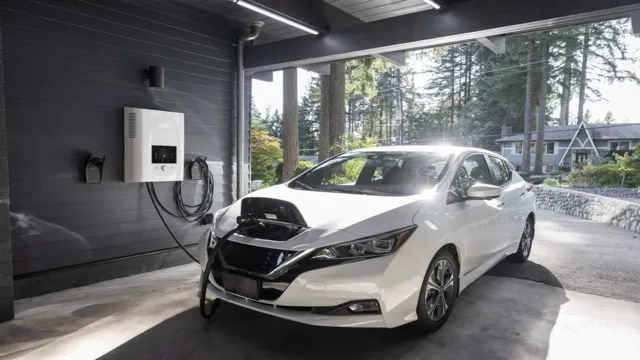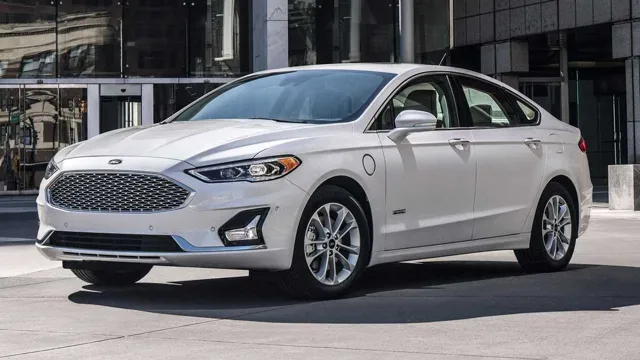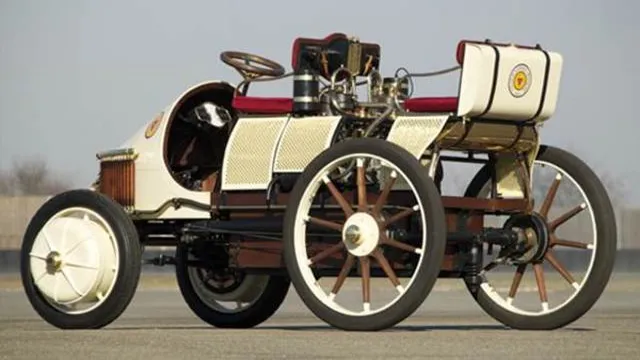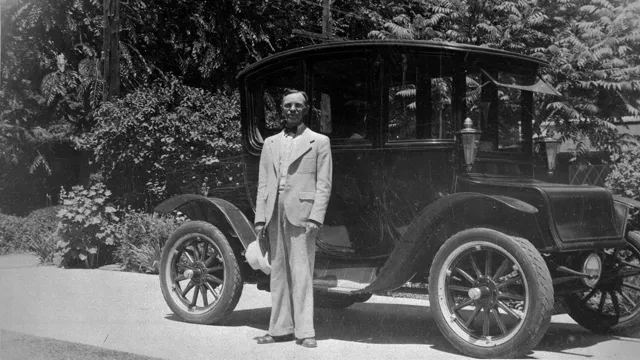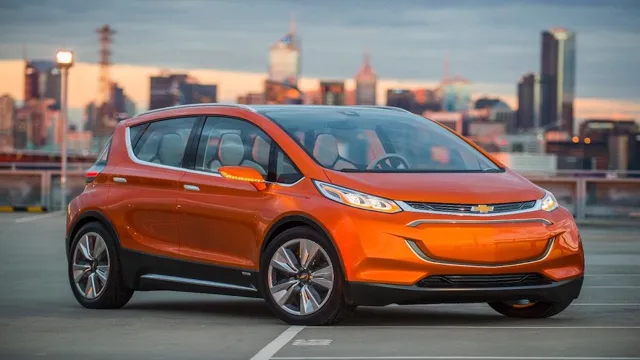Nissan’s Shocking Evolution: A Comprehensive History of Electric Cars from Nissan
Electric cars have come a long way since they were first introduced in the market. Among the brands leading the way in electric car development, Nissan stands out with an impressive history in this area. With the rise in global concerns regarding environmental degradation, governments, and automobile manufacturers are looking for ways to reduce emissions.
This is where Nissan electric cars come in. Nissan has been at the forefront of electric car technology, making significant strides in developing and improving their electric vehicles. The company launched its first all-electric vehicle, the Nissan Leaf, in 20
This car marked a turning point in the company’s history and in the larger history of electric cars in general. Since then, Nissan has continued its efforts to enhance electric vehicle technology, releasing new models and improving on existing ones. With their commitment to creating high-performing, energy-efficient vehicles, Nissan has paved the way for other car makers to follow.
But why go electric? Well, apart from being environmentally friendly, electric cars offer a host of advantages over traditional gasoline-powered vehicles. Not only do they reduce air pollution, but they also provide significant cost savings to car owners. Electric cars have also been found to be more efficient, with fewer moving parts, reducing the need for maintenance.
In this blog post, we will delve deeper into the history of Nissan electric cars. We will take a look at the evolution of the Nissan Leaf and other Nissan electric models, as well as the company’s commitment to sustainable transportation. Join us on a journey to discover the past, present, and future of Nissan electric cars.
Early Beginnings
Nissan’s journey in making electric cars started in the early 1990s, when they conceptualized a new car that would be safe, eco-friendly, and convenient. This led to the birth of the Nissan Altra EV, which was released in 199 Although it was primarily designed for fleet customers, the Altra EV marked Nissan’s commitment to electric cars.
However, because of low consumer demand and lack of public charging infrastructure, the Altra EV production was stopped after only a few years. But Nissan didn’t give up on electric cars. In fact, they continued experimenting with electric drivetrains and battery technology, which eventually led to the development of the Nissan Leaf, the world’s first mass-produced electric car, launched in 20
The Leaf has since become one of the most popular electric cars globally, and Nissan’s EV lineup has expanded to include the e-NV200, a van version of the Leaf, and the Ariya, a fully-electric crossover SUV. Nissan’s electric car history is a testament to their commitment to innovation and the environment, and they continue to push the boundaries of what electric cars can do.
1966 – Introduction of Tama Electric Vehicle
In 1966 the Tama Electric Vehicle was introduced in Japan, becoming one of the first electric vehicles to hit the market. This early form of EV looked nothing like the sleek Teslas we see cruising around today. Instead, the Tama was a clunky little car that could seat up to 4 passengers.
Despite its lack of style, the Tama was a real game changer, introducing people to the possibility of zero-emission vehicles. Of course, EVs have been around for much longer than most people realize. In fact, the first electric car was invented in the 1830s.
However, it wasn’t until the development of rechargeable batteries and electric motors that electric vehicles became a more practical option for everyday use. Today, as we continue to see the effects of climate change, more and more people are turning to EVs as a way to reduce their carbon footprint and help the environment. As the early beginnings of the Tama showed, electric vehicles have come a long way over the years and we can only expect them to get better and better.
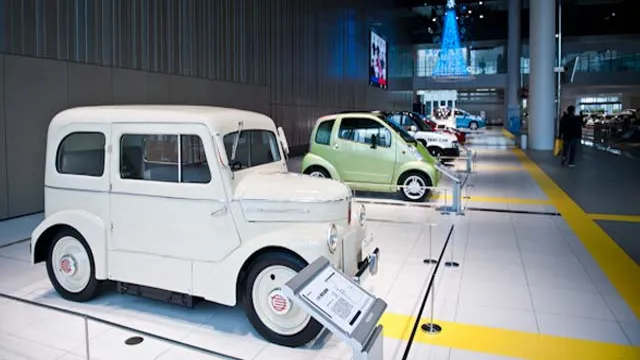
1995 – First Production Electric Car, the Altra EV
In 1995, the world saw the birth of the first-ever production electric car, the Altra EV. It was a groundbreaking invention that would set the precedent for a new era in the automotive industry. This all-electric vehicle was the result of a collaboration between the American car manufacturer, General Motors, and the electric vehicle tech company, Hughes.
The Altra EV was designed to run exclusively on electricity and produced zero emissions. It had a top speed of 80 miles per hour and a range of 80-120 miles, making it an ideal car for city driving and short commutes. The Altra EV had a futuristic design and incorporated advanced features like regenerative braking and an on-board computer that helped drivers manage the vehicle’s battery life.
It paved the way for the development of more mainstream electric cars like the Tesla Model S and the Nissan Leaf. The Altra EV was a testament to the power of innovation and the endless possibilities of technology.
Mainstream Success
Nissan has been making electric cars for over a decade, and their efforts paid off with the success of the Nissan Leaf in 20 This was a defining moment for Nissan in the electric car market, as the Leaf quickly became one of the most popular electric vehicles in the world. The Leaf’s success brought electric cars into the mainstream and paved the way for other car manufacturers to follow suit.
Since then, Nissan has continued to innovate and expand their electric car lineup, including the Nissan Ariya, which is set to launch in 202 The Nissan electric car history is a testament to the power of innovation and perseverance, and it shows that electric cars are here to stay. With the industry’s infrastructure growing, the demand for electric vehicles is also expected to grow, and Nissan is poised to continue leading the way in this exciting new segment of the automotive industry.
2011 – Launch of Nissan Leaf
In 2011, the Nissan Leaf was launched, a fully electric vehicle that marked a new era in the automotive industry. The Leaf quickly became the talk of the town, as it represented a mainstream success for electric vehicles. Finally, a car had been designed that could compete with traditional gas-powered vehicles in terms of speed, range, and comfort.
The Leaf boasted an impressive range of 100 miles, which was a huge achievement for a fully electric car. It also featured a sleek design that was both aerodynamic and stylish, making it a practical and attractive choice for drivers looking for an eco-friendly car. The Nissan Leaf was a game-changer that proved that electric vehicles were not just a niche product, but a viable alternative to gasoline-powered cars.
As a result, this innovation helped to change the perception of electric vehicles from being environmentally-conscious to a practical choice for everyday driving.
2017 – Second Generation Nissan Leaf
The 2017 second-generation Nissan Leaf was a massive success in the mainstream market. The electric car boasted a longer range and better performance than its predecessor, making it a great choice for eco-conscious drivers looking to switch to an electric vehicle. With its sleek and modern design, the Leaf stood out from other electric cars on the market.
Its advanced technologies, including Nissan’s ProPILOT Assist and e-Pedal, set it apart as a leader in the rapidly growing electric car market. The Leaf’s popularity showed that electric cars were no longer just for early adopters, but were becoming a viable option for everyday drivers. Its success paved the way for newer and even more advanced electric cars, solidifying Nissan’s position as a leader in the electric car industry.
Future of Nissan Electric Cars
Nissan electric car history is an interesting tale of innovation and eco-consciousness. Nissan’s first electric car, the Nissan Leaf, hit the market in 2010 and has since become one of the most popular electric cars in the world. The Leaf has undergone several upgrades to improve range and performance, with the latest model offering a range of up to 226 miles on a single charge.
Nissan is also exploring new technologies to further improve the electric car experience, such as vehicle-to-grid technology and battery swapping stations. Recently, Nissan has announced plans to launch eight electric cars by 2022, including a new electric SUV. With the global push towards sustainability, Nissan’s commitment to electric vehicles positions them as a leader in eco-friendly transportation.
The future of Nissan electric cars is bright, and it will be exciting to see how they continue to innovate and push the boundaries of what is possible.
Upcoming Ariya Electric SUV
Nissan is taking the electric car market by storm with the upcoming launch of the Ariya Electric SUV. This sleek and stylish vehicle is set to make waves in the automotive industry, boasting impressive technology and features. With a driving range of up to 300 miles on a single charge, the Ariya is sure to appeal to both eco-conscious and practical drivers.
Plus, its advanced driver assistance and cutting-edge infotainment system make for a comfortable and easy ride. Nissan is leading the charge in the electric car revolution, and the Ariya is just the beginning of their exciting lineup of electric vehicles set to make a significant impact on our roads and our planet’s health. The future of Nissan electric cars looks bright, and we can’t wait to see what they have in store for us next.
Partnerships with EV Charging Companies
Nissan’s partnership with EV charging companies has been a noteworthy move in the electric vehicle market. By collaborating with companies like EVgo and Ionity, Nissan is paving the way for more convenient and accessible EV charging. These partnerships will enable Nissan drivers to quickly recharge their EVs, allowing them to enjoy long-distance drives and reducing their range anxiety.
Moreover, these collaborations aim to establish a network of fast-charging stations across the world, reducing carbon emissions and ensuring a sustainable future for generations to come. With such visionary partnerships, Nissan continues to be a leader in the EV market, offering drivers the latest technology and convenience, with a focus on environmental sustainability. As we move towards a future that intends to reduce carbon emissions significantly, Nissan’s EVs will surely play a crucial role in achieving this goal.
Conclusion
From the early days of the Tama electric car to the sleek and modern Leaf, Nissan has been a pioneer in the world of electric vehicles. With a commitment to sustainability and innovation, Nissan continues to lead the charge towards a greener future. By choosing a Nissan electric car, you’re not only making a stylish choice, but also a responsible one.
So next time you’re cruising down the streets in your Leaf, feel proud to be part of Nissan’s electric car history – it’s a ride that’s both smart and fun.”
FAQs
When was the first Nissan electric car introduced?
The first Nissan electric car, the Nissan Leaf, was introduced in 2010.
What is the range of the latest Nissan electric car?
The latest Nissan electric car, the Leaf Plus, has a range of up to 226 miles on a single charge.
How long does it take to charge a Nissan electric car?
The time it takes to charge a Nissan electric car varies based on the charging method. Using a Level 1 charger (standard household outlet) can take up to 35 hours, Level 2 (240-volt) takes around 8 hours, and DC fast charging can provide up to 80% charge in 40 minutes.
Has Nissan made any significant advancements in electric car technology?
Yes, Nissan has made significant advancements in electric car technology, including the development of a new all-wheel drive system for the Nissan Ariya and the integration of bi-directional charging capabilities in the Leaf, which allows the car’s battery to power homes during power outages.
